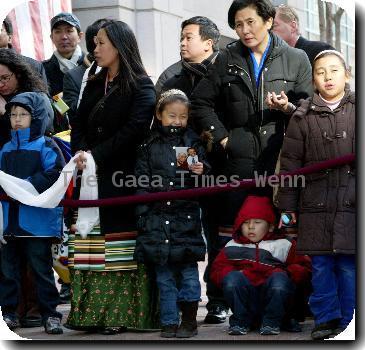US will resume cooperation with Indonesia’s special forces accused of human rights abuses
By APThursday, July 22, 2010
US to resume ties with Indonesia’s special forces
JAKARTA, Indonesia — The United States will cautiously resume cooperation with Indonesia’s special forces while still pursuing reforms in the commando unit more than a decade after ties were severed over its alleged human rights abuses, officials said Thursday.
Both countries stressed that the Indonesian military had improved its human rights record, and American officials noted the decision required that those reform efforts continue.
Human rights activists, however, were skeptical that the special forces would be held accountable for past alleged abuses or would reform enough to prevent future abuse.
U.S. Defense Secretary Robert Gates made the announcement after meeting with Indonesia’s President Susilo Bambang Yudhoyono in the capital of Jakarta.
Indonesia’s special forces were accused of major abuses through the 1990s in the provinces of Papua and Aceh and in East Timor, a former province that has gained independence. The U.S. cut ties with the special forces under a 1997 law that banned U.S. training for foreign military units accused of human rights violations. The ban can be lifted if there have been substantial measures to bring culprits to justice.
“As a result of Indonesian military reform over the past decade … and recent actions taken by the Ministry of Defense to address human rights issues, the United States will begin measured and gradual programs of security cooperation activities with the Indonesian Army Special Forces,” Gates said at a news conference.
“This initial step will take place within the limit of U.S. law and does not signal any lessening of the importance we place on human rights and accountability,” he added.
Yudhoyono guaranteed there would be no more rights abuses by the Indonesian military.
“I’ll guard the Indonesian military reform and ensure that what happened 10 or 20 years ago will not happen again,” the president was quoted as saying by Defense Minister Purnomo Yusgiantoro, who also attended the meeting with Gates.
U.S. State Department spokesman P.J. Crowley told reporters Thursday that Indonesia has improved its human rights. “That said, we’re going in with our eyes open,” Crowley said. “Kopassus has a dark past; we recognize that. We’re going to be insisting that Indonesia live up to its stated commitments. This is very limited. It’s not a slippery slope.”
Washington severed all ties with the Indonesian military in 1999 after troops rampaged through East Timor when it voted to secede from Indonesia. The U.S. lifted that overall ban in 2005 but kept its restrictions against the special forces — known as Kopassus.
International rights groups have said members of Kopassus were linked to the disappearance of student activists in 1997 and 1998 and were never held accountable.
Sen. Patrick Leahy, who authored the U.S. law, said Kopassus was unrepentant and unaccountable still, but he cautiously hoped the new cooperation would lead to reforms.
“I deeply regret that before starting down the road of re-engagement, our country did not obtain and Kopassus did not accept the necessary reforms we have long sought. But a conditional toe in the water is wiser at this stage than diving in,” the Vermont Democrat said in a statement.
He and Gates noted that U.S. cooperation hinges on future reforms, which Leahy said includes suspending Kopassus officers credibly linked to abuses and cooperating in criminal prosecutions.
Hendardi, a prominent rights activist, criticized the decision he claimed was based on economic interest.
“This decision just shows that America is an opportunist which is no longer consistent with its own standard,” said Hendardi, once a lawyer of Xanana Gusmao, now East Timor’s prime minister.
But Gates said that he and U.S. Secretary of State Hillary Clinton were both convinced that rapprochement was “the right thing to do at this time.”
Human Rights Watch strongly criticized the decision as undermining the slight progress that Indonesia’s military has made and said in a statement that the United States was disregarding the problems that will persist in implementing reforms and accountability.
“The Indonesian justice system rarely vigorously investigates or prosecutes anyone from the military, so forces like Kopassus will likely still be able to commit abuses with impunity and still meet the Obama administration’s standards,” said Sophie Richardson, Asia advocacy director at the U.S.-based human rights group. “It’s hard to see the administration’s decision as anything other than a victory for abusive militaries worldwide.”
Associated Press writers Joe Cochrane in Jakarta and Foster Klug in Washington contributed to this report.
Tags: Asia, East Timor, Hillary Clinton, Indonesia, Jakarta, Java, North America, Political Activism, Political Issues, Southeast Asia, United States



